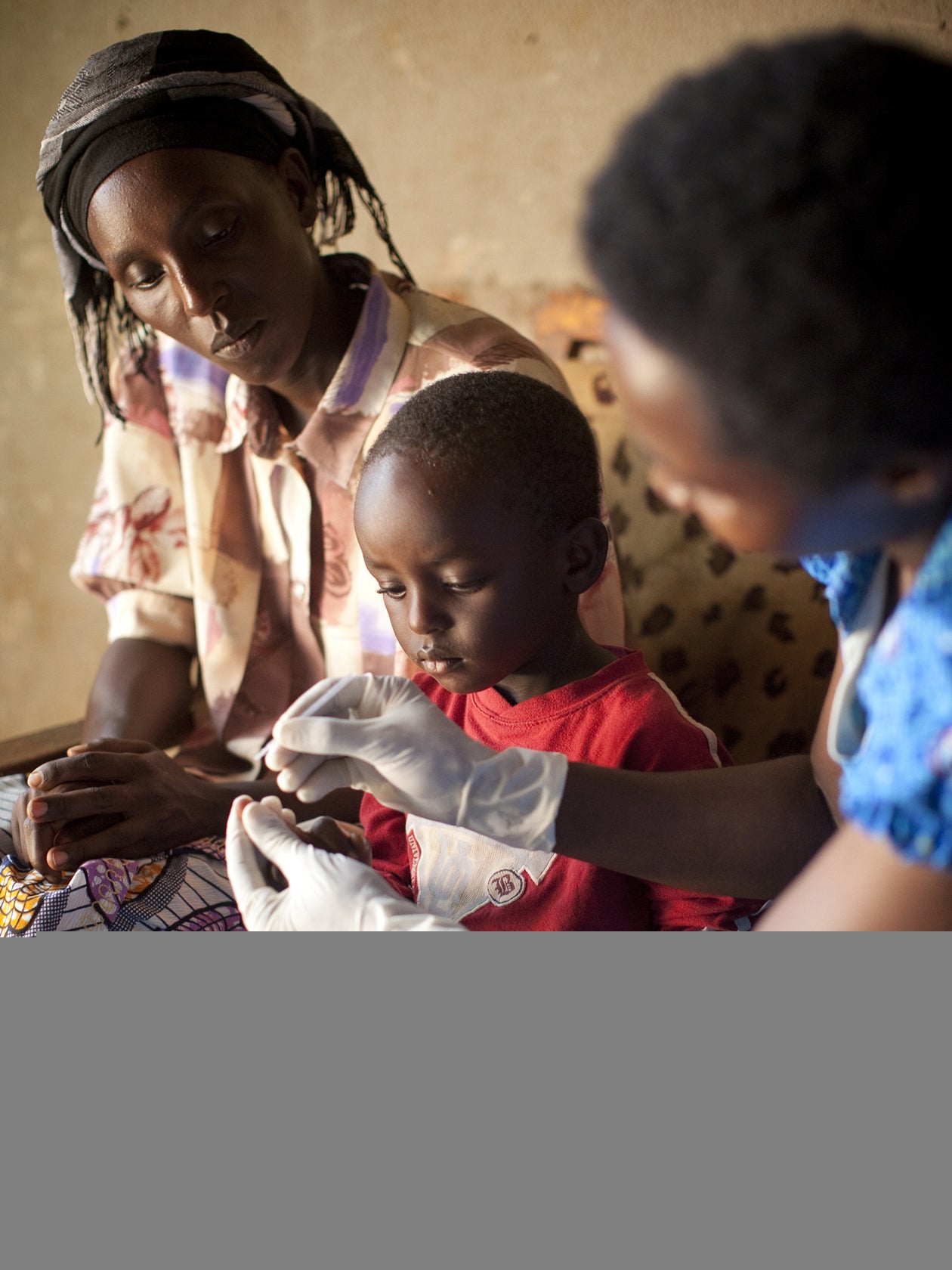Rwanda's CHWs poised to further amplify recent health gains
Health outcomes in Rwanda have seen a remarkable improvement over the past few decades. The country's CHWs could help drive further gains, according to an article in Nigeria Health Watch

Since the year 2000, Rwanda has experienced a sea change in its health outcomes. Life expectancy has increased twenty years (from 49 to 69 years, and is now among the highest on the continent) and both maternal mortality and infant mortality have dropped by nearly 80 percent during the same time.
A recent two-part series on Community Health Worker programs in sub-Saharan Africa by Nigeria Health Watch features Rwanda’s national CHW program and its remarkable impact.
Rwanda’s CHW program was launched in 1995, after the genocide. Initially, the program placed three CHWs in each Rwandan community of between 50 and 150 households. Two of the three, are a male and female pair, referred to as a binôme. They work together to identify and treat childhood diseases such as malaria, diarrhea, and malnutrition in the community. They also provide contraceptives to community members. The third CHW, a female, focuses on delivering antenatal and postnatal care and childbirth assistance.
In 2018, Rwanda added a fourth CHW to each village to focus on chronic diseases like HIV, Tuberculosis, and palliative care for cancer patients.
Rwanda’s 45,000 CHWs, the largest group of healthcare providers in the country, all have at least a secondary school education. They work as volunteers and only compensated through performance-based incentives, based on the number of patients assisted or referred.
Kigali-based Dr. Fernand Rwamwejo was quoted as saying that CHWs in Rwanda are the bedrock of the country’s health system: ‘’If not for them, our tertiary health facilities would have long been overwhelmed. They are basically the backbone of our primary health care system which now caters for a majority of the healthcare needs of our people.’’
Dr. Carolyn Aling, a consultant gynecologist at King Faisal Hospital in Kigali, adds that CHWs have “contributed to reduced incidences of complications and even deaths.’’ That’s because, as the article states, no Rwandan can be denied care, irrespective of their socioeconomic status.
Rwanda could improve health access and outcomes further, the article maintains, if it paid its CHWs. “Such a move will encourage the Community Health Workers and ensure that the equity we advocate for in healthcare delivery is also enjoyed by those providing the care.”
